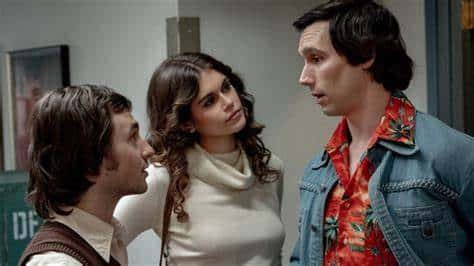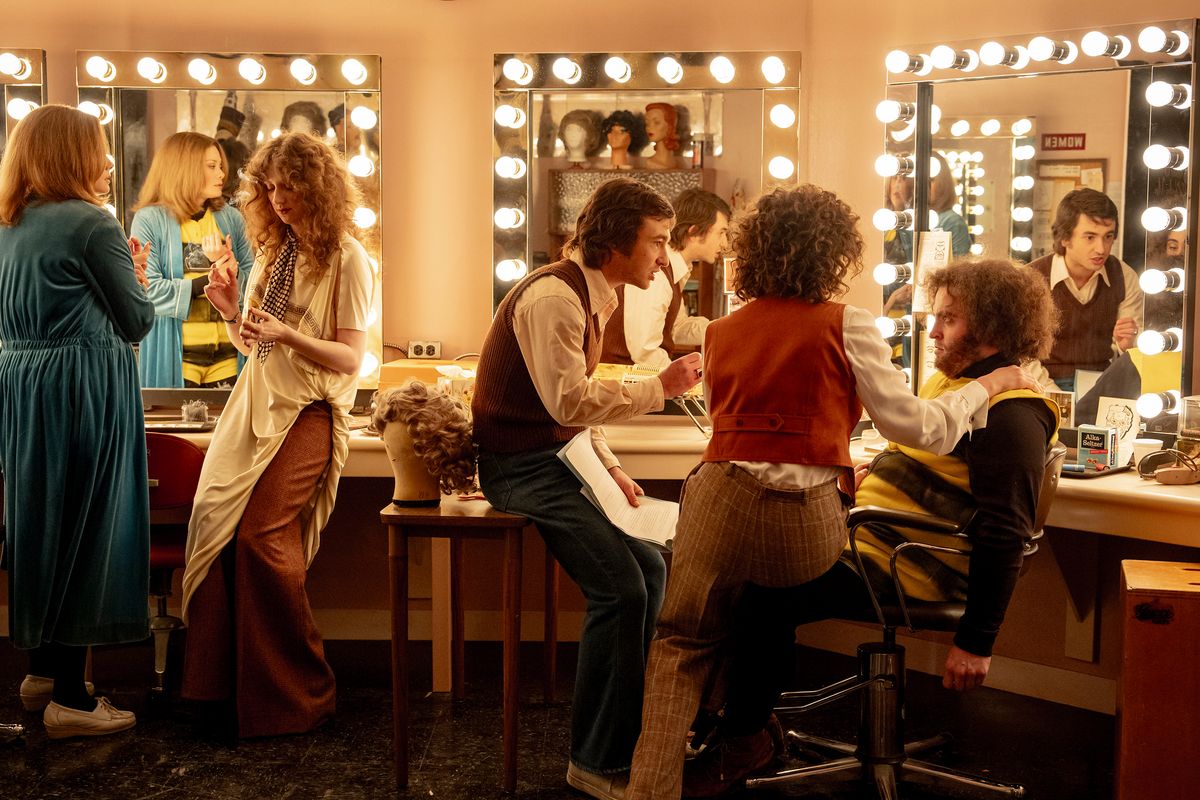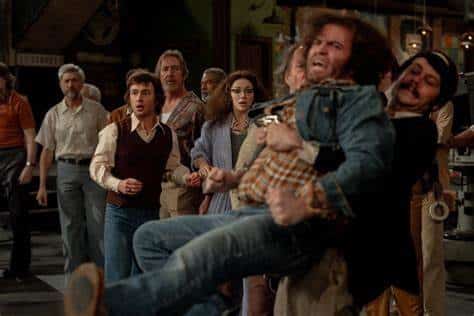
The new movie “Saturday Night” is a drama that explores how the iconic late night sketch show’s Jewish creator Lorne Michaels (Jewish actor Gabriel LaBelle) nearly faced failure before hitting a gold mine.
Most people know that Adam Sandler and many other comedy legends got their starts on NBC’s “Saturday Night Live,” a sketch-comedy program that has significantly influenced pop culture, featuring everyone from Madonna and Nirvana to top politicians. However, Michaels, whose real last name is Lipowitz, encountered numerous obstacles in bringing the show to life. At the time, launching a live show without established stars seemed like a risky venture.
“Saturday Night” chronicles Michaels’ desperate efforts to get the show on air despite overwhelming challenges leading up to its debut on Oct. 11, 1975. Comic John Belushi initially hesitated to sign his contract and even went missing before the premiere began. A couch caught fire, and there were technical issues with sound and lighting. Perhaps most concerning was network executive David Tebet (played by Willem Dafoe), who preferred airing reruns of The Tonight Show Starring Johnny Carson and was reluctant to allow the live broadcast to proceed at all.
How did Michaels get his golden opportunity?
According to “The Complete Uncensored History of Saturday Night Live” by James Andrew Miller and Tom Shales, Johnny Carson told NBC to push his weekend reruns to weekdays to give him some time off. NBC’s President Herb Schlosser tasked producer Dick Ebersol with finding someone to present the Saturday night show instead, but it was unclear what they were looking for.
Read more: 6 Jewish comedians to watch in 2024
Eventually, what they came across was a young Michaels, and the disaster of a premiere he brought with him.
Star power in the making
Jewish writer Alan Zweibel (Josh Brener), who worked as a deli meat slicer in Queens and sold jokes to Catskills comics for seven dollars each, caught Michaels’ attention when he told a quip about stamps and prostitutes. Michaels then asked him how much he needed to live and hired him to what would become “Saturday Night Live.”

The film features Chevy Chase handling the “Weekend Update” segment, where he delivers the news peppered with jokes and punchlines. Cory Michael Smith portrays Chase, capturing the budding star’s essence. Dylan O’Brien also impresses as Dan Aykroyd, who would later star in the “Ghostbusters” franchise.
While Jewish comic Gilda Radner (played by Ella Hunt) is not fully explored, her character could have benefited from more depth in a series format, as Hunt stuns as the dynamic woman.
Jewish comedians take center stage in this film
While many are not played by Jewish actors, the real-life Jews they portray are at the crux of the story in “Saturday Night.”

Jewish comedian and performance artist Andy Kaufman, played by Nicholas Braun, lip-syncs the lyrics “Here I come to save the day,” from the “Mighty Mouse” theme song during a critical moment when executives doubted the show’s viability. Braun delivers an eccentric performance, fitting perfectly into Kaufman’s unique style.
In the film, Michaels recalls the immense pressure faced during production. When he asked iconic Jewish comedian Billy Crystal to shorten his six-minute segment to two, Crystal refused, leading to his dismissal. Host George Carlin, despite being stoned, brought a sense of legitimacy to the show with his button-down shirt.
Rosie Shuster, played brilliantly by Rachel Sennott, offers confidence and pushback to Michaels, with whom she had a complicated relationship. A flashback to their breakup would have added more context and depth to the narrative.
A New Generation
A memorable scene includes an angry Carson berating Michaels. Throughout the film, Michaels showcases his skill and daring in producing a live brand of humor that critiques advertisements and politicians in ways previously unseen. While LaBelle could be portrayed as a bit meaner, audiences sense Michaels’ idealism coupled with a need to be cutthroat in a competitive environment.
Overall, “Saturday Night” is a tense, claustrophobic race against time, successfully building suspense even when we know the outcome. While the focus on the debut night is compelling, it may have played out better if the storyline was explored over an entire season.

Casual fans of “Saturday Night Live” will appreciate this movie. Although it leans more toward drama than comedy, the film should have delved deeper into the struggles of cast members with fame and substance abuse.
The performances, particularly Dafoe’s, are strong enough to engage viewers. Although the film should have further highlighted Lorne and Rosie, the film’s central theme is clear. The standout moment features Belushi, played effectively by Matt Wood.
If you’re passionate about comedy, you’ve likely seen many “SNL” episodes, then this film provides a fascinating look at the challenges involved in getting the show on air. We often see the finished product without understanding the labor and negotiations behind it, making this behind-the-scenes glimpse all the more intriguing. Directed by Jason Reitman, the film captures the frantic desperation and arrogance leading up to the 11:30 broadcast in 1975. It invites viewers to reflect on the nature of humor and the pressures of consistently creating laughter, illustrating the delicate balance between comedy and commerce.
